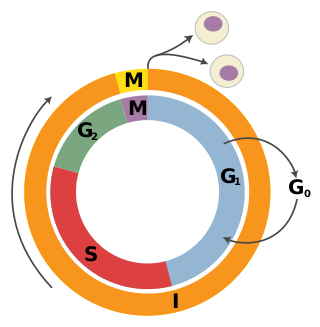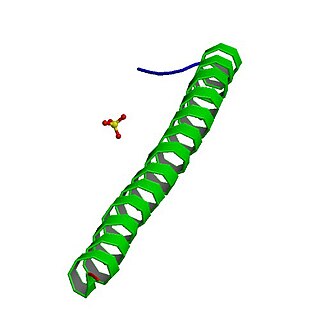Varda Rotter | |
|---|---|
 | |
| Born | 1947 |
Varda Rotter (born June 13, 1947) is a German-born-Israeli cancer researcher.
Varda Rotter | |
|---|---|
 | |
| Born | 1947 |
Varda Rotter (born June 13, 1947) is a German-born-Israeli cancer researcher.
Varda Rotter attended Bar-Ilan University where she studied microbiology for her bachelor's degree and cellular biology for her master's degree (Emet Prize Laureates, 2003) . Rotter attended the Weizmann Institute of Science to receive a doctorate in immunology (Emet Prize Laureates, 2003). After completing her studies, Rotter moved to America and became a part of a cancer research group at the Massachusetts Institute of Technology (Emet Prize Laureates, 2003).
Rotter moved back to Israel and began to do research at the Weizmann Institute (Emet Prize Laureates, 2003). She took the position of senior researcher, professor, and head of the Cellular Biology Department. She became a part of the Department of Molecular Cell Biology (Emet Prize Laureates, 2003). Currently, Rotter holds the position of Director of the Women's Health Research Center at the Weizmann Institute (Emet Prize Laureates, 2003).
Rotter's research focuses on the p53 tumor suppressor gene (Weizmann Institute of Science, n.d.). Rotter and her team believe that the malfunction of this extremely important gene or other tumor suppressor genes can cause cancers to develop (Weizmann Institute of Science, n.d.). In fact, Rotter and her team believe that if this gene is working and intact, cancers will not be able to fully develop in the first place (Weizmann Institute of Science, n.d.). Rotter's research states that while normal p53 genes are supposed to suppress the development of tumors, abnormalities in the gene can actually cause tumors to develop (Department of Molecular Cell Biology, n.d.)

An oncogene is a gene that has the potential to cause cancer. In tumor cells, these genes are often mutated, or expressed at high levels.

p53, also known as Tumor protein P53, cellular tumor antigen p53, or transformation-related protein 53 (TRP53) is a regulatory protein that is often mutated in human cancers. The p53 proteins are crucial in vertebrates, where they prevent cancer formation. As such, p53 has been described as "the guardian of the genome" because of its role in conserving stability by preventing genome mutation. Hence TP53 is classified as a tumor suppressor gene.

A tumor suppressor gene (TSG), or anti-oncogene, is a gene that regulates a cell during cell division and replication. If the cell grows uncontrollably, it will result in cancer. When a tumor suppressor gene is mutated, it results in a loss or reduction in its function. In combination with other genetic mutations, this could allow the cell to grow abnormally. The loss of function for these genes may be even more significant in the development of human cancers, compared to the activation of oncogenes.

Bert Vogelstein is director of the Ludwig Center, Clayton Professor of Oncology and Pathology and a Howard Hughes Medical Institute investigator at The Johns Hopkins Medical School and Sidney Kimmel Comprehensive Cancer Center. A pioneer in the field of cancer genomics, his studies on colorectal cancers revealed that they result from the sequential accumulation of mutations in oncogenes and tumor suppressor genes. These studies now form the paradigm for modern cancer research and provided the basis for the notion of the somatic evolution of cancer.

Adenomatous polyposis coli (APC) also known as deleted in polyposis 2.5 (DP2.5) is a protein that in humans is encoded by the APC gene. The APC protein is a negative regulator that controls beta-catenin concentrations and interacts with E-cadherin, which are involved in cell adhesion. Mutations in the APC gene may result in colorectal cancer.

Mouse double minute 2 homolog (MDM2) also known as E3 ubiquitin-protein ligase Mdm2 is a protein that in humans is encoded by the MDM2 gene. Mdm2 is an important negative regulator of the p53 tumor suppressor. Mdm2 protein functions both as an E3 ubiquitin ligase that recognizes the N-terminal trans-activation domain (TAD) of the p53 tumor suppressor and as an inhibitor of p53 transcriptional activation.

Ruth Sager was an American geneticist. Sager enjoyed two scientific careers. Her first was in the 1950s and 1960s when she pioneered the field of cytoplasmic genetics by discovering transmission of genetic traits through chloroplast DNA, the first known example of genetics not involving the cell nucleus. The academic community did not acknowledge the significance of her contribution until after the second wave of feminism in the 1970s. Her second career began in the early 1970s and was in cancer genetics; she proposed and investigated the roles of tumor suppressor genes.
Sir David Philip Lane is a British immunologist, molecular biologist and cancer researcher. He is currently working in the Department of Microbiology, Tumor and Cell Biology at the Karolinska Institute and is Chairman of Chugai Pharmabody. He is best known for the discovery of p53, one of the most important tumour suppressor genes.

Inhibitor of growth protein 1 is a protein that in humans is encoded by the ING1 gene.

Inhibitor of growth protein 2 is a protein that in humans is encoded by the ING2 gene.

Aharon Razin was an Israeli biochemist.
Tyler Jacks is a David H. Koch Professor of Biology at the Massachusetts Institute of Technology (MIT), a long-time HHMI investigator, and Founding Director of the David H. Koch Institute for Integrative Cancer Research, which brings together biologists and engineers to improve detection, diagnosis, and treatment of cancer. Dr. Jacks is a member of the board of directors of Thermo Fisher Scientific and Amgen, two of the major biotechnology corporations in the world. He is the President of Break Through Cancer, a foundation dedicated to supporting multi-institutional teams of researchers focused on finding solutions to some of the most difficult to treat cancers. He is also a member of the Board of Overseers, the larger of two governing boards of Harvard University.

Scott L. Friedman is an American scientist, professor and physician who works in the field of hepatology. Friedman has conducted pioneering research into the underlying causes of scarring, or fibrosis, associated with chronic liver disease, by characterizing the key fibrogenic cell type, the hepatic stellate cell His laboratory has also discovered a novel tumor suppressor gene, KLF6 that is inactivated in a number of human cancers including primary liver cancer. Friedman is the Fishberg Professor of Medicine, and Chief of the Division of Liver Diseases, Mount Sinai School of Medicine in New York. Friedman has two children, a son, Leor Friedman, and a daughter, Yael Friedman.

The retinoblastoma protein is a proto-oncogenic tumor suppressor protein that is dysfunctional in several major cancers. One function of pRb is to prevent excessive cell growth by inhibiting cell cycle progression until a cell is ready to divide. When the cell is ready to divide, pRb is phosphorylated, inactivating it, and the cell cycle is allowed to progress. It is also a recruiter of several chromatin remodeling enzymes such as methylases and acetylases.
Arnold Jay Levine, is an American Molecular biologist. He was awarded the 1998 Louisa Gross Horwitz Prize for Biology or Biochemistry and was the first recipient of the Albany Medical Center Prize in Medicine and Biomedical Research in 2001 for his discovery of the tumor suppressor protein p53.
Laurent Susini is a French molecular biologist; his research is in the area of cancer and the genetic basis of tumor reversion.
Luis F. Parada is a Colombian developmental biologist and neuroscientist who currently serves as Director of the Brain Tumor Center, Albert C. Foster Chair and American Cancer Society Research Professor at Memorial Sloan Kettering Cancer Center in New York City, New York.
Professor Carol L. Prives FRS is the Da Costa Professor of Biological Sciences at Columbia University. She is known for her work in the characterisation of p53, an important tumor suppressor protein frequently mutated in cancer.

Yardena Samuels or Samuels-Lev is an Israeli molecular biologist who is the Director of the Ekard Institute for Cancer Diagnosis Research at the Weizmann Institute of Science. Her research considers the genetic mutations of melanoma.
Laura Attardi is the Catharine and Howard Avery Professor of the School of Medicine, and professor of radiation oncology and genetics at Stanford University where she leads the Attardi Laboratory. Attardi studies the tumor suppressor protein p53 and the gene that encodes it, TP53, to better understand mechanisms for preventing cancer.